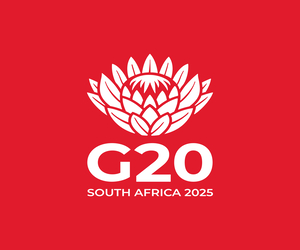African Ministers Unite at Indaba 2025 to Drive Continental Tourism Growth
A powerful spirit of unity and ambition defined the African Ministers’ Roundtable at Africa’s Travel Indaba 2025, held on 13 May at Durban’s Inkosi Albert Luthuli International Convention Centre. As reported by South African Tourism, this high-level dialogue brought together influential tourism leaders from across the continent to chart a collaborative path forward for African tourism.
Hosted by South Africa’s Minister of Tourism, Patricia de Lille, the roundtable welcomed esteemed delegates, including Márcio de Jesus Lopes Daniel (Angola), Sikhumbuzo Dlamini (Eswatini), Fredson Bacar (Mozambique), and Rodney Sikumba (Zambia), who together outlined a bold vision for a more connected, accessible, and inclusive African tourism landscape.
“Africa is open, Africa is collaborating, and Africa is poised for growth.”
This unifying message resounded throughout the discussions as ministers emphasized that the future of African tourism lies not in competition but in cohesion.
From Competition to Collaboration
Minister Sikhumbuzo Dlamini of Eswatini captured the tone succinctly: “We are not here to compete. We are here to collaborate.” Citing the mutual benefits Eswatini enjoys from proximity to South Africa, he stressed the importance of regional synergy in maximizing tourism’s impact.
Zambia’s Minister of Tourism, Rodney Sikumba, took this further, delivering a compelling call for pan-African solidarity: “The days of competition are gone. We must support one another and showcase what makes us unique—our cultures, our gastronomy, our dress.” He revealed Zambia’s significant expansion of visa-free access—from 42 to 167 countries—and urged African leaders to support open skies initiatives and streamline continental travel: “Let’s strengthen existing hubs like OR Tambo, Jomo Kenyatta, and Bole International Airport. Collaboration is the way forward.”
Breaking Barriers and Building Bridges
Minister Márcio Daniel of Angola echoed this sentiment, describing Africa’s Travel Indaba as “the starting point to address the barriers that still exist in creating a boundary-less economy.” He announced key steps Angola is taking, including bilateral B2B meetings with Zambia and South Africa to develop joint tour packages, and the rollout of e-visas and e-permits by 2028. His poignant observation captured the urgency: “Young people from Africa don’t understand why they cannot travel from Cape to Cairo without a visa.”
Mozambique’s Fredson Bacar reinforced the strength of cross-border cooperation, highlighting the ZIMOZA Transfrontier Park—a collaboration between Mozambique, Zimbabwe, and Zambia—as a working model of regional tourism development. He noted that 70–75% of Mozambique’s tourists currently come from South Africa, reflecting existing deep ties and the impact of visa exemptions for 29 countries, including all SADC states.
Driving Policy, Investment, and Skills Development
Minister Patricia de Lille emphasised that travel barriers—particularly restrictive visa policies and closed skies—remain the “two biggest obstacles” to tourism growth on the continent. She outlined South Africa’s push through the African Union and AfCFTA to address these issues and confirmed the country’s progress towards an Electronic Travel Authorisation (ETA) system, expected by year-end. This system will simplify global visa applications using digital platforms and AI.
Crucially, Minister de Lille also championed the need for “demand-led skills development”, ensuring Africa’s youth are trained for real opportunities within the tourism economy. Minister Sikumba echoed this priority, highlighting Zambia’s move to embed hospitality training into its national curriculum to empower its next generation.
Shaping Africa’s Tourism Future—Together
Africa’s Travel Indaba 2025 reaffirmed its role as far more than a trade show—it’s a launchpad for transformation. Through decisive conversations, cross-border partnerships, and clear policy direction, the event highlighted a shared commitment to building a more open, integrated, and resilient tourism sector.
As Minister Daniel aptly concluded, the path ahead begins with a united step: “Africa’s time is now—let’s build the future together.”




